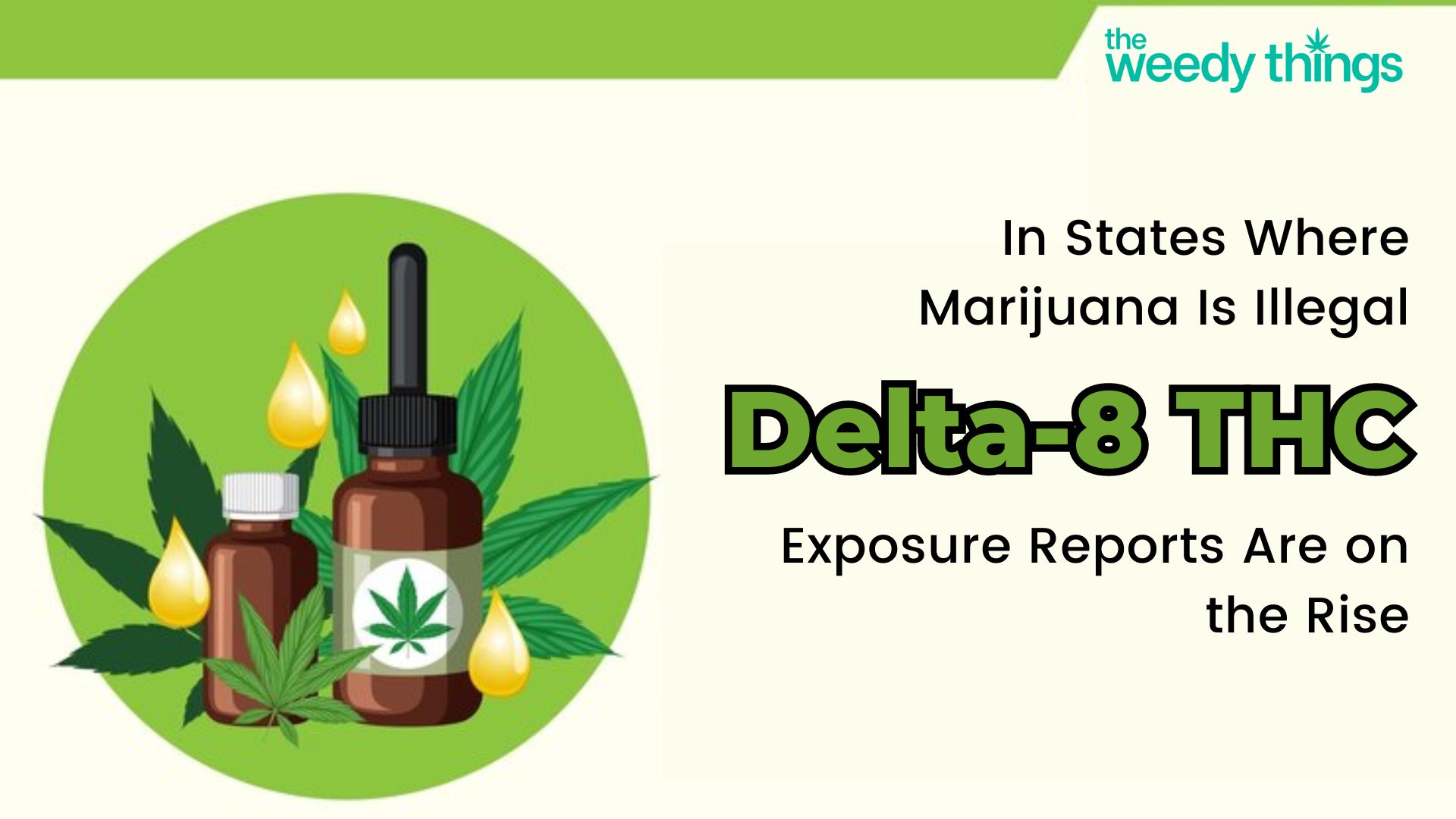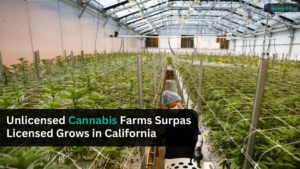Understanding Delta-8 THC
Delta-8 THC is a cannabinoid found in cannabis plants, similar to the more well-known Delta-9 THC, which is the primary psychoactive component of marijuana. Delta-8 THC produces milder effects compared to Delta-9 THC, often described as less intense but still psychoactive. It has gained traction due to its legal status in some areas where marijuana remains illegal. Delta-8 THC is often marketed as a legal alternative to Delta-9 THC, with products ranging from edibles to tinctures and vapes.
The Rise in Delta-8 THC Exposure Reports
In states where marijuana is illegal, Delta-8 THC products have become increasingly accessible. Despite its legal status, the surge in Delta-8 THC exposure reports highlights potential safety concerns. The increase in poison center calls suggests that consumers may be experiencing adverse effects from Delta-8 THC, possibly due to a lack of regulation and quality control.
Delta-8 THC products are often sold online or in local cannabis stores that operate in a legal gray area. These products can vary widely in potency and purity, which may contribute to the rise in exposure incidents. Consumers might inadvertently consume high doses or encounter products that contain contaminants, leading to adverse reactions.
The Role of Local Cannabis Stores
Local cannabis stores play a significant role in the availability and regulation of Delta-8 THC products. In states with strict marijuana laws, these stores often operate with limited oversight, which can impact the quality and safety of the products they offer. Unlike legal cannabis stores in states where marijuana is legal, these local stores may not adhere to the same rigorous testing and labeling standards.
Implications for Consumers
The rise in Delta-8 THC exposure reports in states where marijuana is illegal underscores the need for greater consumer education and regulatory oversight. Consumers may be attracted to Delta-8 THC products due to their perceived legality and milder effects, but they might not fully understand the potential risks involved.
Lack of standardized regulations for Delta-8 THC products can lead to inconsistencies in product quality. Consumers may encounter products with varying levels of Delta-8 THC or those that are contaminated with other substances. This variability can result in unintended and potentially harmful effects, contributing to the increase in poison center reports.
The Need for Regulation
Another noteworthy aspect of the proposed initiative is the potential expansion of product offerings, including a variety of cannabis strains. The initiative recognizes the diversity of consumer preferences and the demand for different strains with unique effects and flavors. This could lead to legal cannabis stores curating a selection of the best weed strains to cater to the evolving tastes of consumers.
The growing number of Delta-8 THC exposure reports highlights the urgent need for regulatory frameworks that address the sale and distribution of cannabinoid products. Comprehensive regulations could help ensure product safety and protect consumers from potential harm.
Regulation could include:
- Testing Requirements: Mandating regular testing of Delta-8 THC products for potency and contaminants to ensure consistency and safety.
- Labeling Standards: Requiring clear and accurate labeling of Delta-8 THC products, including dosage information and potential side effects.
- Quality Control: Implementing quality control measures to monitor and maintain the safety of Delta-8 THC products.
States that currently prohibit marijuana might benefit from adopting regulations that address the sale of Delta-8 THC products. By doing so, they can help mitigate the risks associated with unregulated cannabinoid products and protect consumer health.
Potential Policy Changes
In states where marijuana remains illegal, policymakers could focus on developing specific regulations for Delta-8 THC. This approach would provide a controlled environment for the sale and distribution of these products, minimizing risks and ensuring consumer safety.
Consumer Awareness and Education
Consumer education is crucial in addressing the rise in Delta-8 THC exposure reports. Providing information about the potential risks and safe usage of Delta-8 THC products can help individuals make informed decisions. Consumers should be encouraged to:
- Research Products: Understand the source and composition of Delta-8 THC products before purchase.
- Consult Professionals: Seek advice from healthcare professionals regarding the use of cannabinoid products, especially if they have underlying health conditions.
- Report Adverse Effects: Report any adverse reactions to poison centers or health authorities to contribute to ongoing research and safety improvements.
The increase in Delta-8 THC exposure reports in states where marijuana is illegal highlights significant safety concerns and the need for regulatory improvements. While Delta-8 THC offers an alternative for those seeking a legal cannabinoid product, its rise underscores the importance of regulation and consumer education. By addressing these issues through proper oversight and policy changes, states can better protect consumers and ensure that cannabinoid products are safe and effective.
Frequently Asked Questions
Delta-8 THC (tetrahydrocannabinol) is a cannabinoid found in cannabis plants, closely related to Delta-9 THC, the primary psychoactive compound in marijuana. Delta-8 THC has similar effects but is typically considered to be less potent than Delta-9 THC. It can produce euphoria, relaxation, and altered sensory perception.
In states where marijuana is banned or heavily restricted, Delta-8 THC products have become more popular as an alternative. These states often have more lenient regulations regarding hemp-derived cannabinoids, leading to increased availability and use of Delta-8 THC. The surge in exposures may also be due to a lack of regulation and oversight in the production and sale of Delta-8 products, which can lead to higher risks of contamination and misuse.
While Delta-8 THC is often marketed as a safer or milder alternative to Delta-9 THC, it can still pose risks, especially if used in excess or if products are poorly manufactured. Risks include impaired cognitive and motor functions, potential for addiction, and unwanted psychoactive effects. The lack of standardization in Delta-8 products can also result in inconsistent potency and quality, increasing the risk of adverse effects.
Consumers should be cautious and informed when purchasing Delta-8 THC products. It’s important to buy from reputable sources that provide third-party lab testing results to ensure product purity and accurate labeling. Additionally, starting with a low dose and being aware of local regulations and potential interactions with other substances can help mitigate risks.
Regulatory bodies and health officials are increasingly scrutinizing Delta-8 THC products and their impact on public health. Some states are considering or implementing stricter regulations on the sale and distribution of Delta-8 THC to ensure product safety and reduce exposure risks. Ongoing research and public awareness campaigns aim to educate consumers about the potential risks associated with Delta-8 THC and promote safer use practices.




